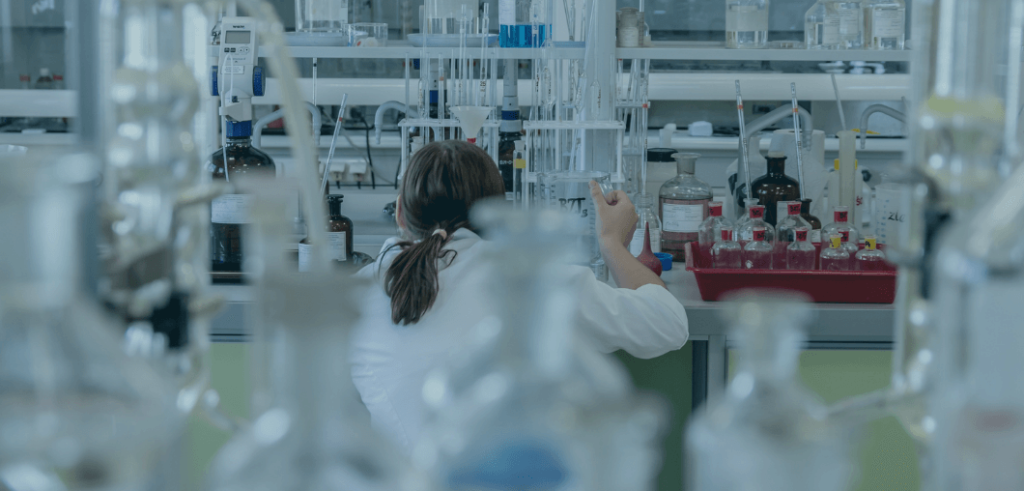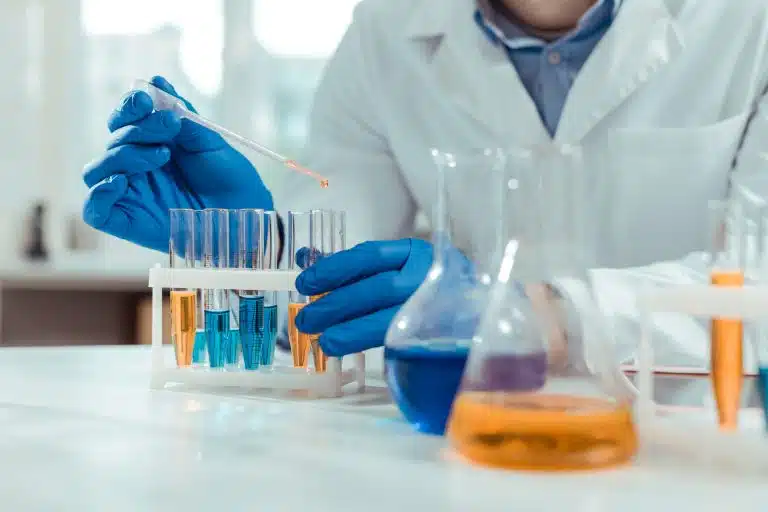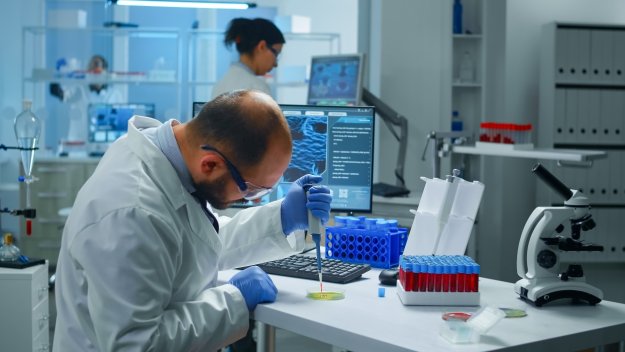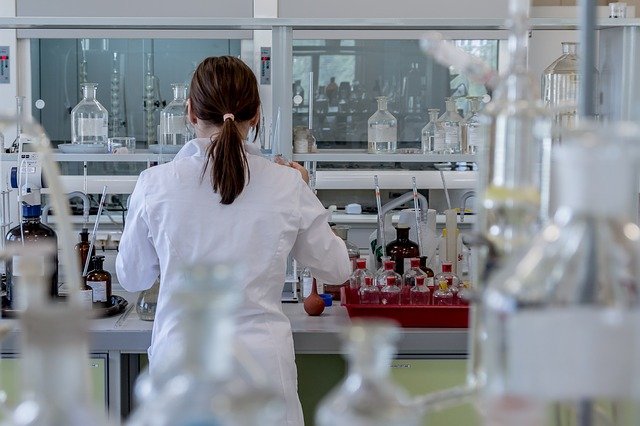No, medicine without chemistry is like a puzzle missing pieces. Chemistry is the language of the body, helping us understand how it works and creating the right tools to fix it.
In drug development, chemistry designs medicines that interact with the body’s chemistry to heal. Diagnostic tests rely on chemical reactions to identify what’s wrong.
Without chemistry, these advancements vanish, leaving us in the dark about diseases and treatments. Simple painkillers, antibiotics, and even vitamins are products of chemistry. It’s the invisible force making medicine effective.
So, no, you can’t do medicine without chemistry—it’s the science that brings healing to life.
Why is chemistry necessary in drug development?

Chemistry helps scientists design medicines that fit perfectly with what’s going on in our bodies. They study the shapes and structures of chemicals to make sure the medicines do their job well.
It helps make sure medicines are safe and work well. It helps scientists predict any possible side effects and tweak the medicines to make them better for us.
Moreover, chemistry helps us understand the chemical stuff happening inside our bodies. This is important for finding the right targets for medicines and making sure they work with our natural processes.
Furthermore, chemistry helps scientists understand how medicines get absorbed, move around, and do their job in our bodies. This is crucial to know how much medicine we need and how to give it to get the best results.
Chemistry helps create tools to check if we’re sick. From simple tests to fancy scans, chemistry helps doctors find out what’s going on inside our bodies.
Last but not least, chemistry is also helping us make personalized medicines. This means doctors can create treatments that are just right for each person based on their unique body and genes.
How does chemistry play a role in diagnostic tests?
Chemistry is the unsung hero in the realm of diagnostic tests, contributing significantly to our ability to identify and understand various illnesses. Diagnostic tests are like detectives, and chemistry provides the investigative tools.
When we feel unwell, our bodies undergo changes at the chemical level. Diagnostic tests use these changes as clues, relying on the principles of chemistry to interpret them.
Biomarker Recognition
Chemistry aids in recognizing biomarkers, which are unique substances in the body that indicate the presence of a specific disease. These could be proteins, DNA fragments, or other molecules with distinctive chemical properties.
Assay Development
Diagnostic assays, such as blood tests or imaging techniques, are developed with a deep understanding of chemical reactions. Scientists design these assays to react specifically with certain biomarkers, ensuring accurate and reliable results.
Precision in Testing
Chemistry ensures that diagnostic tests are precise and selective. Specificity is crucial to distinguish between different diseases or conditions that may have similar symptoms, guiding healthcare professionals toward an accurate diagnosis.
How chemical reactions aid in identifying diseases
Chemical reactions are the heartbeat of diagnostic tests, providing a dynamic and measurable response that helps pinpoint the presence of diseases.
These reactions serve as the language through which the clues gathered from the body’s chemistry are translated into meaningful information.
Immunological Reactions
In immunoassays, a type of diagnostic test, chemical reactions occur between antibodies and antigens. This interaction is highly specific, allowing for the identification of particular pathogens or abnormal cells indicative of a disease.
Enzymatic Activity
Enzymes, which are biological catalysts, play a crucial role in diagnostic tests. Changes in their activity levels can indicate disease. For instance, elevated levels of certain enzymes in the blood might suggest damage to specific organs.
Nucleic Acid Analysis
Molecular diagnostics, a rapidly evolving field, relies on the analysis of genetic material. Chemistry enables the identification of specific DNA or RNA sequences associated with genetic disorders or infectious agents.
Imaging Agents
Chemistry contributes to the development of contrast agents used in medical imaging. These agents enhance the visibility of specific tissues or structures, aiding in the identification of abnormalities or diseases during imaging procedures.
What challenges arise if we remove chemistry from medicine?

Removing chemistry from medicine would pose significant challenges, as chemistry is the foundation of understanding and developing treatments for various health conditions.
Lack of Drug Development
Chemistry is integral to drug development. Without it, creating effective and safe medications tailored to specific diseases would be nearly impossible. The design, synthesis, and optimization of drugs rely on a deep understanding of chemistry.
Impaired Diagnostic Abilities
Diagnostic tests heavily depend on chemical reactions and the identification of biomarkers.
Removing chemistry would hinder the development of accurate and reliable diagnostic tools, making it challenging to detect diseases at early stages or differentiate between different health conditions.
Limited Understanding of Biological Processes
Chemistry provides insights into the biochemical processes within the human body. Without this understanding, medical researchers and practitioners would struggle to comprehend the intricacies of biological systems, hindering advancements in disease understanding and treatment.
Reduced Treatment Precision
Chemistry allows for the precise design of drugs that interact with specific targets in the body. Removing chemistry would lead to less precise and less targeted treatments, resulting in potential side effects and reduced therapeutic efficacy.
Ineffective Disease Monitoring
Chemistry plays a crucial role in developing tests that monitor disease progression and treatment effectiveness. Without these tools, healthcare providers would lack the means to track patients’ health over time and adjust treatment plans accordingly.
Limited Personalized Medicine
Personalized medicine, which tailors treatments to individual genetic and molecular profiles, relies heavily on chemistry. Removing chemistry would hinder the ability to customize treatments based on patient’s unique characteristics, leading to a more generalized approach to healthcare.
Impaired Imaging Technologies
Medical imaging techniques, such as MRI and PET scans, use contrast agents and chemical principles to visualize internal structures. Without chemistry, the development of advanced and accurate imaging technologies would be hindered, limiting the ability to diagnose and monitor diseases.
Reduced Understanding of Disease Causes
Chemistry contributes to understanding the molecular and cellular causes of diseases. Removing chemistry would impede efforts to unravel the root causes of illnesses, hindering progress in preventive and curative medicine.
What are the entry requirements for studying medicine in the UK?

Typically, you will need to have completed high school education with strong academic performance, especially in science subjects such as Biology and Chemistry.
Most medical schools in the UK require A-levels in specific subjects, often including Biology and Chemistry. Some universities may also accept other qualifications like the International Baccalaureate (IB), Scottish Highers, or access courses.
Many medical schools require applicants to take either the UKCAT or BMAT. These are aptitude tests designed to assess cognitive abilities, critical thinking, and scientific knowledge.
Relevant work experience, such as shadowing doctors or volunteering in healthcare settings, is often valued by medical schools. It demonstrates your commitment to and understanding of the medical profession.
A well-crafted personal statement is a crucial part of the application process. It should highlight your motivation, relevant experiences, and why you want to study medicine.
You will typically need to provide references, usually from teachers who can attest to your academic abilities and suitability for studying medicine.
Shortlisted candidates are often invited for an interview as part of the selection process. This interview may assess your communication skills, problem-solving abilities, and motivation for pursuing a medical career.
If English is not your first language, you may need to demonstrate proficiency through tests like the International English Language Testing System (IELTS) or the Test of English as a
FAQ
Which university has the lowest entry requirements for medicine UK?
The universities known to have slightly lower entry requirements for medicine in the UK are Manchester Medical School, Newcastle University Medical School, Norwich Medical School, and Queen’s University Belfast.
What is the easiest medical degree to get?
The easiest medical degrees to get are in phlebotomy, physical therapy, and dental hygiene.
What is the easiest university to get into for medicine?
The easiest universities to get into for medicine are Queen’s University Belfast, University of Missouri – Kansas City School of Medicine, and University of North Dakota School of Medicine & Health Sciences.
Which country is hardest to study medicine?
The hardest countries to study medicine are the U.S. and Canada. However, some sources suggest that Canada is the most competitive.
What is the hardest medical degree to get?
The hardest medical degree to get is considered to be a doctoral degree (PhD), which is the highest degree you can earn in a particular field.
Which subject is best for medicine?
The best subjects for medicine are chemistry, biology, and either maths or physics (or both) as they will keep all the medical schools open to you.
Do you need chemistry for medicine in Australia?
Yes, almost all medical schools in Australia require a strong pass in Chemistry.
Which doctor degree is highest?
The highest level of a doctor is a medical director, who holds the most power and responsibility in a hospital or clinic.
Which subject is most important in MBBS?
The most important subjects in MBBS are considered to be Anatomy, Biochemistry, and Physiology.
Which is the toughest course in MBBS?
The toughest course in MBBS is considered to be Anatomy.
Final thoughts
Medicine without chemistry is like a story without words – incomplete. Chemistry is the key to effective treatments and understanding our bodies. It’s the invisible force that powers medicine, making it a vital part of our well-being.
So, the simple answer is no, you can’t do medicine without chemistry. It’s the unsung hero, quietly shaping the way we heal and stay healthy.

